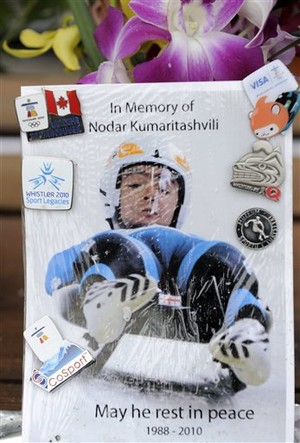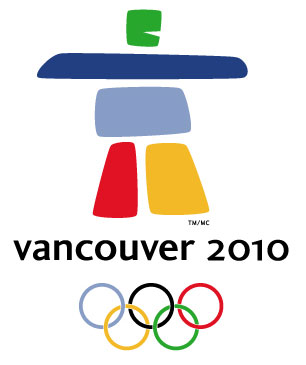The opening day of the 2010 Winter Olympics was marked with tragedy when 21-year-old Georgian luger, Nodar Kumaritashvili, was involved in a fatal crash during a training run. The horrific event dampened the spirit of the international competition and colored the mood at the opening ceremonies later that night. As anyone would expect, the International Olympic Committee (IOC) sprung into action, responding to the accident with a multi-point plan:
- Shut down the luge track to prevent any more deaths… check.
- Conduct an internal investigation… check.
- Let an “independent” authority do its own investigation… check.
- Make immediate modifications to the luge track to stop future accidents… check.
- Make a press release, expressing regret, but denying all responsibility… check.
 All perfectly
All perfectly acceptable anticipated responses. So why is this an IP story, you ask? Well, when the above-described actions failed to push this embarrassing catastrophe under the rug, the IOC turned to their attorneys, asking what else could be done to hush the whole thing up. Video clips of Kumaritashvili losing control of his sled and crashing into a steel pole were popping up all over the internets, repeatedly showing the world what happened. The answer from their legal team: Those people are violating our copyright in that clip! We can use the Digital Millennium Copyright Act (DMCA) to have that material removed from the web — so no one else will see it!
Now, giving the IOC the benefit of the doubt, I’m sure their intentions in suppressing the accident footage were honorable. Don’t misunderstand me. I recognize that what happened was horrible, and Kumaritashvili’s family and teammates are likely still reeling from the impact of it all. If they have to see that clip everywhere they turn on the web, that’s not ideal — especially if any of the commentary employing the clip was in poor taste, which I’m sure some of it was.
 Even where all of this is true, U.S. copyright law was not implemented to choke off the flow of facts and news reporting. In fact, § 107 of the Copyright Act specifically limits a copyright owner’s rights in these kinds of situations. The IOC cannot use DMCA takedown notices to silence the speech it does not like. In fact, sending those notices may end up costing the IOC, unless they can successfully make the case that they considered whether use of the clips could be fair use before making their demands. Just ask the artist currently known as Prince. This will be tough argument for the IOC, considering this isn’t the first time they’ve tried to misuse their copyrights.
Even where all of this is true, U.S. copyright law was not implemented to choke off the flow of facts and news reporting. In fact, § 107 of the Copyright Act specifically limits a copyright owner’s rights in these kinds of situations. The IOC cannot use DMCA takedown notices to silence the speech it does not like. In fact, sending those notices may end up costing the IOC, unless they can successfully make the case that they considered whether use of the clips could be fair use before making their demands. Just ask the artist currently known as Prince. This will be tough argument for the IOC, considering this isn’t the first time they’ve tried to misuse their copyrights.
Unfortunately, groups like the IOC don’t recognize that the appropriate response to inappropriate speech is not to look for the most expedient suppression mechanism — it’s more speech. The marketplace of ideas is perfectly capable of recognizing which commentary is a legitimate dissemination of news about the tragedy and which ones are morbidly childish. Sending out demand letters that essentially state “you have to pay if you want to show our Faces of Death video” is equally deplorable, no matter what the IOC’s intentions actually were.
The article was originally published on The Tactical IP Blog














